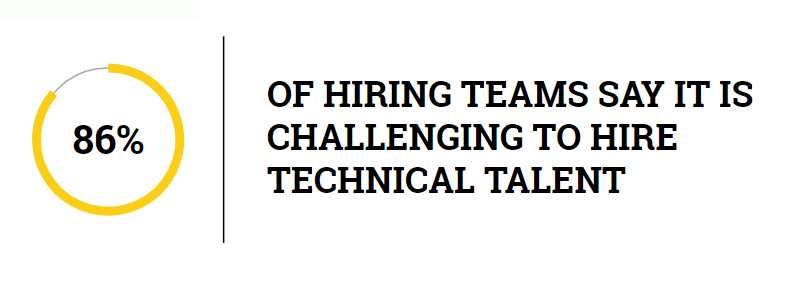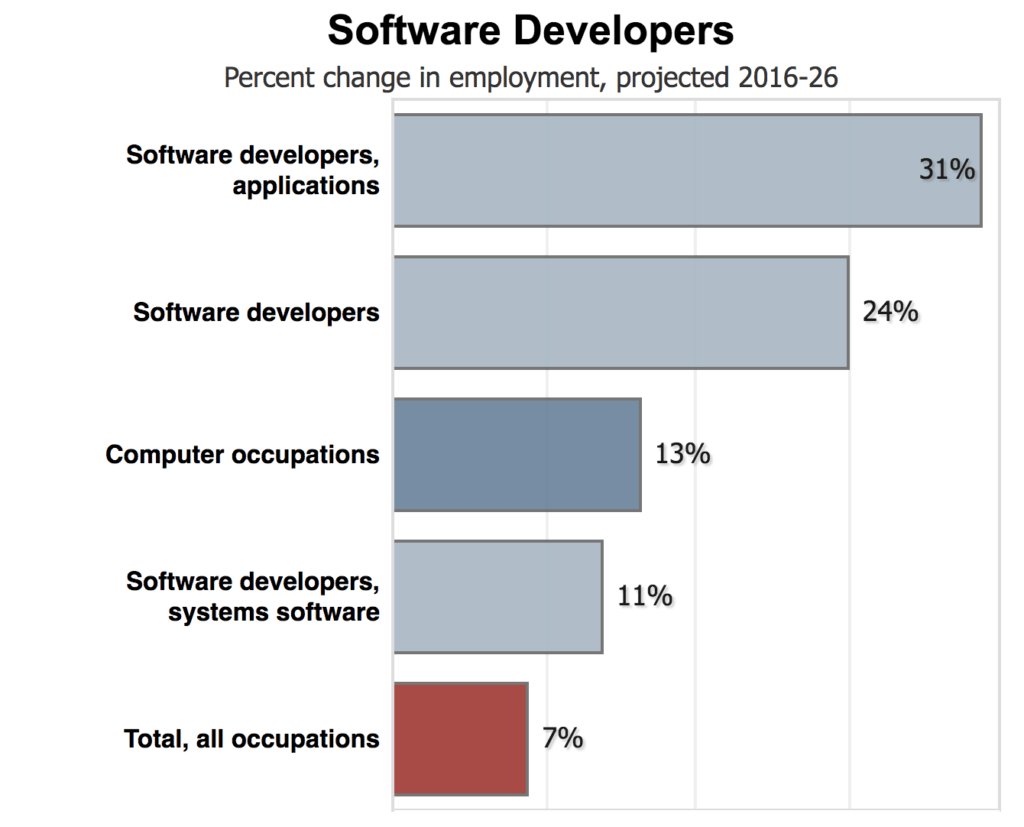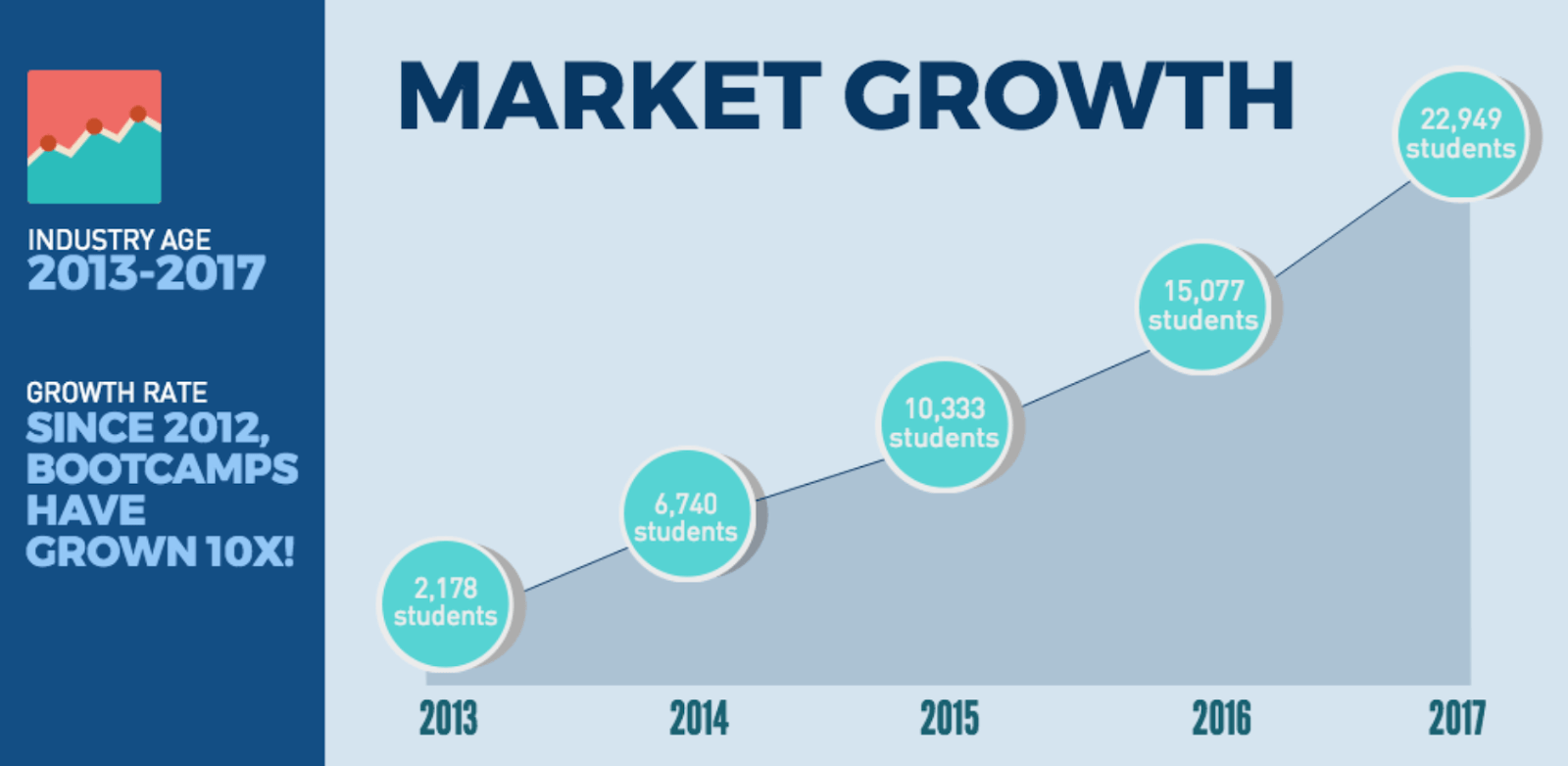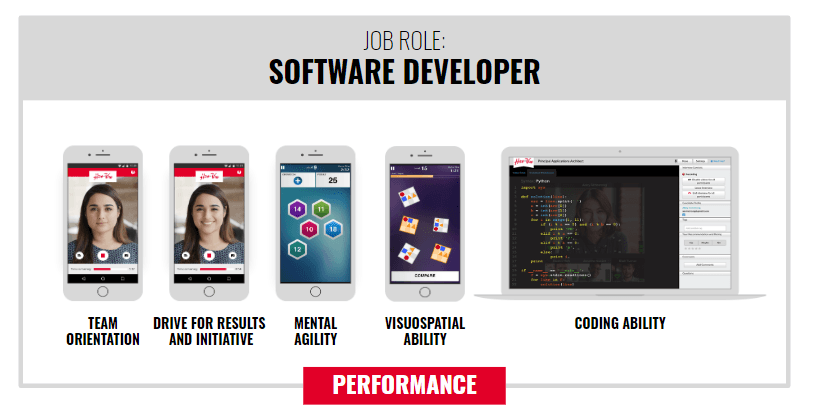Candidates: Are you interviewing and need support?
Most organizations struggle to hire software developers. The recruiting process is typically long, expensive, and requires heavy input on the part of the hiring manager.
This week, we hosted a webinar - How to Crack the Technical Hiring Code - featuring HireVue’s CTO, Loren Larsen, and Senior Product Marketing Manager, Dan Parker. We explored some of the reasons why it’s so difficult to hire great programmers, and HireVue’s approach to solving that problem.
If You Have Difficulty Hiring Software Engineers, You’re Not Alone
Dan introduced the challenge with some market data. 86% of hiring teams say it is challenging to hire technical talent, and 83% say the challenge has hurt their business through lost revenue, slower product development, and existing developer burnout.

And it’s not going to get better.
The US Bureau of Labor Statistics estimates that the number of software developer roles will increase between 25-31% over the next 10 years. Compare this to the labor market as a whole, which is expected to grow by around 7%.

But there’s an upside. For the first time ever, the number of graduates from coding bootcamps is going to eclipse the number of computer science graduates. Self-taught developers are on the rise. There are even programs that help former coal miners transition into software development.

Today, developers can come from more places than ever. Unfortunately, the typical recruiting process tends to exclude developers from non-traditional learning paths. Developers without a four-year computer science degree are often filtered out automatically. Even if they aren’t, technical interviews often require knowledge of college-level computer science curriculum which is not covered in bootcamps or online courses.
Most organizations are unintentionally - though quite literally - cutting their available pool of qualified talent in half.
Coding Challenges Alone are Inadequate for Assessing Technical Talent
Developers do more than “code.” It’s estimated that the majority of developers spend less than half their day actively coding. During the other half of the day, they’re communicating: collaborating with teams, working with QA to test bugs, writing documentation, and discussing customer requirements. They’re also learning new languages and frameworks as your organization’s stack inevitably changes.
While coding tests do a good job of measuring technical skills, they don’t give any insight into the equally important (and more difficult to teach) soft and cognitive skills.
HireVue’s technical hiring solution solves this by assessing for the full range of critical developer competencies.

Structured video interview questions measure candidates’ soft skills: their ability to communicate, collaborate with teams, and drive for results. You can also use these questions to give candidates a chance to explain their approach to solving a previous coding challenge.
Game-based assessments measure candidates’ cognitive skills: how quickly they can learn, solve problems, and mentally manipulate information.
Coding challenges measure candidates’ technical skills: their proficiency in a given language, and how they solve programming problems.
This comprehensive approach to assessment means recruiting teams can present hiring managers with great technical candidates: not just the ones that can code, but the candidates who can effectively communicate, learn, and creatively solve problems.
Watch the full webinar to learn how to:
- Frame your technical assessment and prevent candidate dropout;
- Optimize your live technical interviews and avoid bias; and
- Set up coding challenges so they include candidates with high potential, while filtering out those who can’t code.
You’ll also learn the answers to these questions, which were asked during the webinar:
- How do you prevent candidates from pasting answers to your coding challenges online for future applicants to cheat from?
- How does this differ from take home projects or smaller paid projects to vet candidates? What are the advantages/disadvantages?
- From what you have seen, once a candidate has gone through the initial screening process and you want to bring them in for an interview onsite, what is the purpose of that interaction?
- You talked about involvement from the technical hiring team. What do you think is the right balance of early involvement to help make sure you are effectively screening the right candidates vs. bringing them in later in the process?
- You briefly mentioned games as a way to measure cognitive ability. What sort of cognitive traits are important for software development, and how games effectively measure those?


